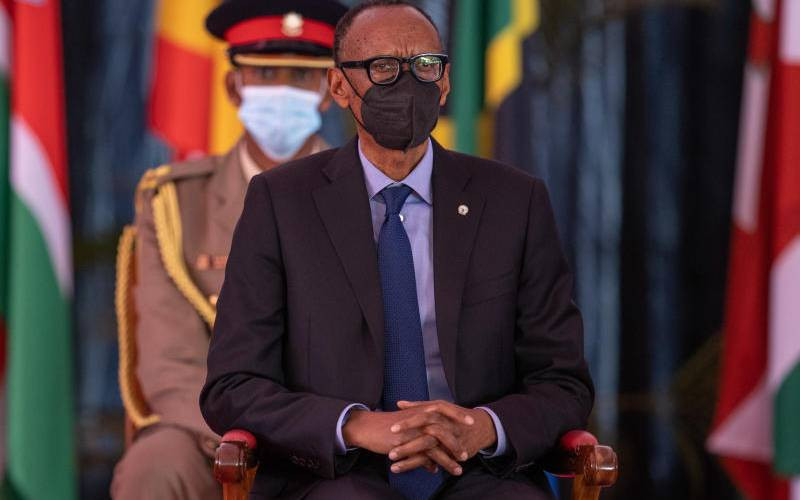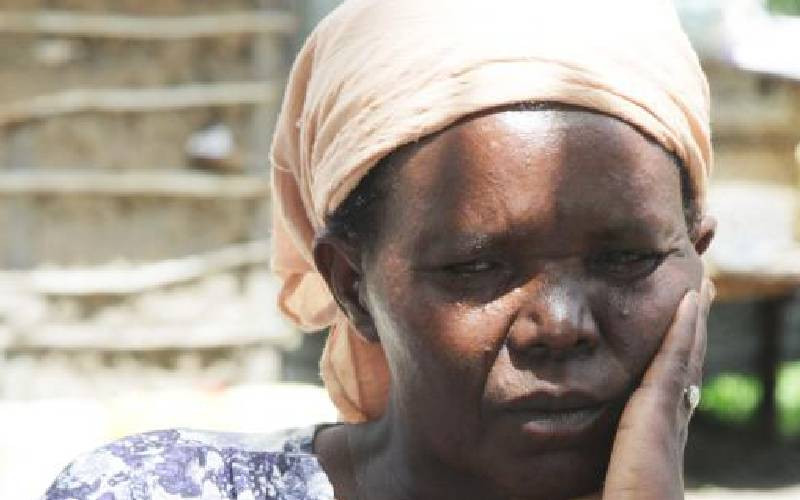In the early 70s, Francis Njeru Chege and his family sighed in relief as a Kenya Army truck sputtered to a stop in the middle of nowhere. The journey had been treacherous, and as the party jumped off and beat the brown dust off themselves, he looked around and wondered how they could even call the bush next to him home.
“But somehow we managed. We dug deep. Very deep and made this area hospitable,” Chege says, smiling at the remembrance of a stubborn distant memory of conquest.
Among the earliest and most consistent of their problems in the early days of the Mpeketoni settlement scheme were baboons.
“It is like they had sensed we were here to drive them away. So they made life very difficult for us. They ate our crops, chased our women and children away from farms... they were just a nuisance.”
So together with other young men, Chege decided to lodge a formal complaint with the then District Commissioner John Makosewe. The community needed state assistance to deal with the primate nuisance.
Fresh wounds
“The DC basically gave us two options: abandon the land or chase the baboons,” Chege says.
One day at the crack of dawn, the young men hatched a scheme. They knew where the bulk of the baboons were. So, armed with sharpened pangas they formed one straight line standing shoulder to shoulder. Then walked towards the baboon colony. Swift forward panga movements with each step. When they ran out of breath, tens lay dead. A few people were scratched. The village was never bothered again. Until now.
“With the things I have seen in my life, a curfew is the least of my worries,” he says. For him, the Lamu County curfew should go on until the Government sees fit. “They must know something we don’t... let it go on,” he says, adjusting himself on the chair. He clears his throat. Then pauses for almost a minute.
“You need to understand that we have seen bloodshed and the slaughter of human beings. You know... like they are chicken. So if it means that I lose a few more shillings from my business but be assured of waking up in the morning, so be it.”
Official records put the death toll in Mpeketoni and parts of Tana River in the July killings that Chege is talking of at more than 80. Witness accounts said a majority of the victims were dragged from their houses in full view of their families and led to their deaths, leaving behind nervous, scared and resigned individuals to pick up the pieces.
The wounds from that attack remain fresh. For the survivors, lifting the curfew means the possibility of reliving these horrors all over again. “The curfew is the only thing that will keep us safe for now. It might be hard for our brothers on the island to understand where we are coming from but that is that,” says Chege. “And remember, no one has been arrested over this. What if they are still among us waiting for the Government to pull out and strike?”
His opinion matters. He may well be Kenya’s longest serving councilor having represented Mpeketoni Ward, later Hongwe for 33 uninterrupted years —1979 to 2013. He says he has never seen his homeland as tense as it currently is.
Seven road blocks punctuate the earth road between Garsen and Mpeketoni town. Each manned with no less than five armed policemen. At dusk when the curfew moves into place, the regular and administration police are replaced with an even heavier armed force.
The Kenya Defence Forces are at all hours in full combat gear. Here, the enemy can strike at any time and at any place. It has done it before. Not once. Not twice. Repeatedly. Each attack as brutal as the previous one. “For us, the curfew is not about saving livelihoods... it is about saving lives,” Paul Kimani Njuguna, the Leader of Minority in the Lamu County Assembly, says.
Stay informed. Subscribe to our newsletter
Uneasy calm
He too believes the Government when it says danger still remains out there, so the 12-hour curfew remains and continues to feed the uneasy calm for residents. Everyday conversations lift the lid on pent up fears. Suspicion runs deep and in Mpeketoni, like with many small towns, strangers can be easily picked out from the thickest of crowds.
“This is why we believe the attackers may still be amongst us. They attacked at night because they knew we would recognise them had they come during the day...,” Njuguna says. On a hot Saturday afternoon in Havanna Club, three ladies sit around a table. Each deeply immersed in conversation with their phones. A tone alert draws a smile. A vibration alert draws an even broader one. It is 2pm. Local auditions of the Miss Lamu County pageant are going on.
A few patrons sit around the makeshift runway where aspiring models strut and are measured. The process is not rigorous. “Hatujamuona vizuri! Wacha arudie tena,” shouts a patron. The urge to see his favourite participant do another walkthrough is too strong to resist so he shouts the organisers into submission. She makes another run. Intense heat and warm beer form an uncanny partnership. Add a curfew to this mix and the pressure from all three can make a grown man do strange things.
Many of the women do not meet the 36-24-36 criteria but make it through to the next stage nevertheless.
“We would have liked it to have happened at night, but our choices right now are limited,” says Mercy Muthoni, one of the aspiring beauty queens. In exactly four hours, she ought to have shown what she has to offer and returned home through a path tucked between Mama Shiro’s Shop and Kibe’s Kinyozi. They too feel the curfew. Business too is slow for them but the message remains the same:
“Security above all. Everything else can wait,” says Njuguna.
Here, the farmers disappear behind thick fences and onto fertile farmlands to tend to the melons, tomatoes, vegetables and prepare seed beds for the next planting season. Later, some visit the town centre for any pending business. But at 6:30pm they hurriedly lock themselves behind doors. Adjustments have been made to accommodate this minor inconvenience.
Most of the endless bush Chege first encountered is now replaced by concreate and iron sheets. What used to be a mere speck on the map has now become a town known by many. The baboon nuisance has been replaced by something more dangerous that creeps out from the shadows, to wound and kill.
The last time the residents tried to put up a defence, it did not work. For now, the last line remains the State. If this is line taken away from them, hell, the say, will once again pitch tent in their homes. “Have you ever smelt human blood,” Chege says. “The scent never leaves you.”
Patrolling police in Lamu have been accused of unnecessary brutality, petty theft and thuggery by a section of residents in Mpeketoni and Lamu.
The official line from the police on the ground claim this is far from the truth since their mandate is to protect and keep the peace. However, an officer who spoke on condition of anonymity said not all who go on patrol abide by the law. Elements of rougue patrol units extort and break into shops.
 The Standard Group Plc is a
multi-media organization with investments in media platforms spanning newspaper
print operations, television, radio broadcasting, digital and online services. The
Standard Group is recognized as a leading multi-media house in Kenya with a key
influence in matters of national and international interest.
The Standard Group Plc is a
multi-media organization with investments in media platforms spanning newspaper
print operations, television, radio broadcasting, digital and online services. The
Standard Group is recognized as a leading multi-media house in Kenya with a key
influence in matters of national and international interest.
 The Standard Group Plc is a
multi-media organization with investments in media platforms spanning newspaper
print operations, television, radio broadcasting, digital and online services. The
Standard Group is recognized as a leading multi-media house in Kenya with a key
influence in matters of national and international interest.
The Standard Group Plc is a
multi-media organization with investments in media platforms spanning newspaper
print operations, television, radio broadcasting, digital and online services. The
Standard Group is recognized as a leading multi-media house in Kenya with a key
influence in matters of national and international interest.









